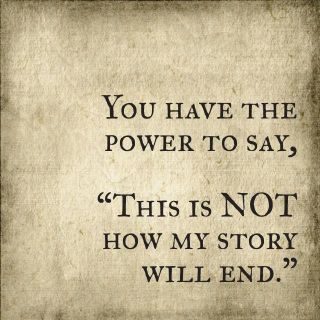Unconscious
How to Break Repetitive Cycles
If you want lasting change, you've got to go deep to make it
Posted May 28, 2014

There is a saying attributed to Albert Einstein that insanity is doing the same thing over and over again and expecting different results. That kind of insanity is so common in our lives that it’s not even fair to call it insanity! It is just human. For if we are honest with ourselves, we realize that our psychological lives are a bit like the film, Groundhog Day. Despite our best efforts to be different, we get up each morning and find ourselves thinking, behaving, and feeling the same way we did yesterday—and the days, months, and years before that.
Have you ever wondered why? Why perfectly intelligent people do such obviously counterproductive things? Why we so often are drawn to the same kind of destructive relationships? Why we sabotage ourselves? Why we are chronically late, or keep drinking too much, or keep making bad financial decisions when we are trying so hard to change?

These questions are the questions for anyone in the change business and for psychotherapists in particular. The human tendency toward repetition even in the face of help and the desire to change was the puzzle that got Freud out of the neurological game and into the psychological game in the first place. He discovered that there was something powerful beneath the surface of consciousness that was responsible for this widespread human compulsion to repeat our troubles even when we’re trying to do otherwise.
Freud suggested the metaphor that the mind is like a glacier (the so-called “topographical” model of the mind). So much of what motivates us and concerns us—holds us back and pushes us forward—lies beneath the surface of consciousness. We do our best to work with what we know: the tip of the glacier, the conscious mind. But powerful forces lie beneath the surface: the unconscious mind.
The unconscious mind is conceived as a container for the split off, unwanted, and frightening aspects of our lives—feelings, thoughts, and experiences that we cannot face consciously. The mind protects itself from such perceived dangers by burying them in the unconscious for safe-keeping—Freud called this repression. But since these experiences are still very much alive, the container of the unconscious is like a grave filled with living beings. What gets buried there isn’t dead. It still has its say and its sway.
Models of psychotherapy, like psychoanalysis, that reach deep below the surface of consciousness are the kinds of models that can give you a real chance at breaking this crazy yet all-too-human repetition cycle. Difficulties are addressed at the root, at the headquarters where these unconscious forces live. When we shine a light on the unconscious, we can better see what’s going on in there. Facing our unconscious fears and fantasies rather than avoiding them brings a whole new perspective. Over time, it actually tends to make them less scary. The monster under the bed is revealed to be just what it is: more imaginary than real.

When we get a better picture of our unconscious dynamics, we also discover something quite critical for the change process. We discover the ways in which we are actively, purposefully perpetuating our troubles. I know it’s hard to admit, but this is crucial. We all unconsciously fight against the very changes we seek to make. If we don’t know this about ourselves, we’re stuck in believing that we are a victim of other people, or our circumstances, or life itself. But when we realize that we play an active role in our tendency to stay stuck in repetitive cycles then we discover we have more power than we thought we had. We do not have to remain slaves to our unconscious fears. Now that we know them, we can face them. And facing them is the way out of our insanity.
One of Freud's famous phrases is where id was, there ego shall be. The modern version of this idea is that where the unconscious was, the conscious shall be. There are secrets that we keep, even from ourselves. But these buried secrets are also the key to the possibilities of real change. If we want to make real changes—lasting changes—we’ve got to go deep to make them.
Copyright 2014 Jennifer Kunst, Ph.D.
Like it! Tweet it! Share it!
Tweet this: You have the power to say, "This is NOT how my story will end."
Jennifer Kunst, Ph.D. is the author of the newly released book, Wisdom from the Couch: Knowing and Growing Yourself from the Inside Out


